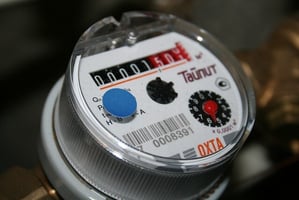The global paints and coatings market is poised for significant growth in 2024, driven by robust...
Forecast of Nigeria Solar Panel Market in 2024
The Nigeria solar panel market is poised for significant growth in 2024, driven by increasing investments in renewable energy and government initiatives promoting solar power adoption. As the country grapples with energy access challenges and seeks sustainable solutions, solar panels have emerged as a crucial component of its energy strategy.

Market Trends and Growth Drivers
One of the key drivers of the solar panel market in Nigeria is the government's commitment to renewable energy. Initiatives such as the National Renewable Energy and Energy Efficiency Policy (NREEEP) aim to diversify the energy mix and reduce dependence on fossil fuels. This policy framework provides incentives and support for solar projects, attracting both local and international investments.
Moreover, the declining costs of solar technology globally have made solar panels more affordable and accessible in Nigeria. This cost reduction, coupled with improvements in efficiency and reliability of solar panels, has boosted their adoption across residential, commercial, and industrial sectors.
Key Challenges
Despite the promising growth prospects, challenges persist in the Nigeria solar panel market. Infrastructure limitations, such as inadequate transmission and distribution networks, pose hurdles to effective solar energy integration. Addressing these challenges will be crucial for sustaining the momentum of market growth.
Market Segmentation
The Nigeria solar panel market can be segmented based on application into residential, commercial, and industrial sectors. Residential installations are expected to witness substantial growth driven by increasing awareness of energy independence and rising electricity costs. In the commercial and industrial sectors, solar panels offer cost savings and environmental benefits, driving adoption among businesses seeking sustainable energy solutions.
Future Outlook
Looking ahead to 2024, the Nigeria solar panel market is forecasted to experience robust growth. The market is expected to benefit from ongoing government support, favorable policies, and increasing consumer awareness of solar energy's advantages. Technological advancements, including innovations in energy storage and smart grid integration, are also anticipated to drive market expansion.
Furthermore, partnerships between local and international stakeholders are likely to play a pivotal role in accelerating solar panel deployment across Nigeria. Collaborative efforts in research and development, capacity building, and financing initiatives will foster a conducive environment for sustainable growth in the solar energy sector.
Conclusion
In conclusion, the Nigeria solar panel market is poised for dynamic growth in 2024, driven by supportive government policies, declining costs, and increasing awareness of solar energy benefits. While challenges remain, such as infrastructure limitations, the market's trajectory points towards a promising future characterized by expanded solar adoption across diverse sectors. As stakeholders continue to collaborate and innovate, the solar panel market in Nigeria is expected to contribute significantly to the country's energy security and sustainability goals.
For More Info https://www.gmiresearch.com/report/nigeria-solar-panel-market/



